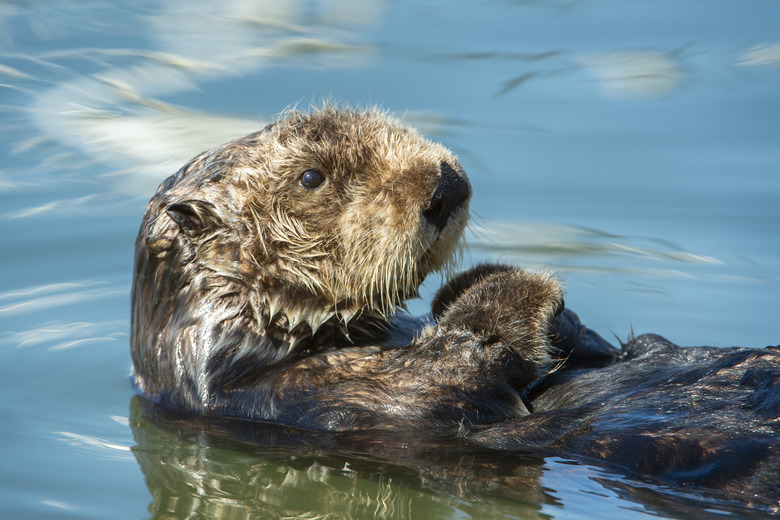Sea Otters Are Dying, And Your Pet Cat Might Be To Blame
Cats are killing California sea otters.
Sounds a bit like an epic water vs. land brawl scene out of a deranged Disney movie, right? It's not. House cats, or more specifically, their poop, are managing to kill sea otters without ever coming into direct contact with them, and the news should remind all pet owners to be more mindful about how to make sure their beloved fur babies impact the ecosystem around them.
Toxoplasma, a parasite that can be found in cat feces, is the culprit in some sea otter deaths in California. When it infects otters, it affects their brains, giving them symptoms including seizures and confusion. If it doesn't kill them outright by making their brain too weak to function, it can lead to their death by making them more vulnerable to other predators.
Scientists have known that sea otters and other marine life including beluga whales and dolphins can contract toxoplasma for a while now, but many believed they had contracted it via outdoor felines like bobcats. But now, a recently released study has revealed that the strain of toxoplasma that has killed at least 12 California sea otters comes straight from domesticated house cats.
But How Does Cat Poop Make it to the Sea?
But How Does Cat Poop Make it to the Sea?
There are a few different ways that toxoplasma can make its way to sea otters, even without a cat going out and doing its business right on the beach.
One way is via rain. When a cat goes poo outside, rainwater can become contaminated and drop into the otters' habitats. Researchers also noted that some water treatment facilities can't rid flushed toilet water of the parasite.
Domestic cats that go outdoors can also kill birds and rodents, passing along the contamination to those corpses. If sea otters eat those infected remains, they can also get toxoplasma.
What Can Cat Owners Do?
What Can Cat Owners Do?
More than anything, this study serves as a reminder that human and animal actions as seemingly simple as emptying bowels can impact all aspects of the world around us.
That doesn't mean it's time for drastic measures like banning house cats, but the researchers who worked on this study are recommending that if your cat is a house cat, it should stay in your house. This not only prevents it from killing species like birds, but it also prevents any outdoor poops from contaminating rainwater.
They're also suggesting that cat owners dispose of cat droppings in the trash, rather than flushing them. That way, contaminated poo won't make its way through treatment facilities and into otter habitats.
These easy fixes can help you be a more mindful pet owner, and save some marine life in the process.
Cite This Article
MLA
Dragani, Rachelle. "Sea Otters Are Dying, And Your Pet Cat Might Be To Blame" sciencing.com, https://www.sciencing.com/cat-poop-killing-sea-otters-13721441/. 30 August 2019.
APA
Dragani, Rachelle. (2019, August 30). Sea Otters Are Dying, And Your Pet Cat Might Be To Blame. sciencing.com. Retrieved from https://www.sciencing.com/cat-poop-killing-sea-otters-13721441/
Chicago
Dragani, Rachelle. Sea Otters Are Dying, And Your Pet Cat Might Be To Blame last modified March 24, 2022. https://www.sciencing.com/cat-poop-killing-sea-otters-13721441/
